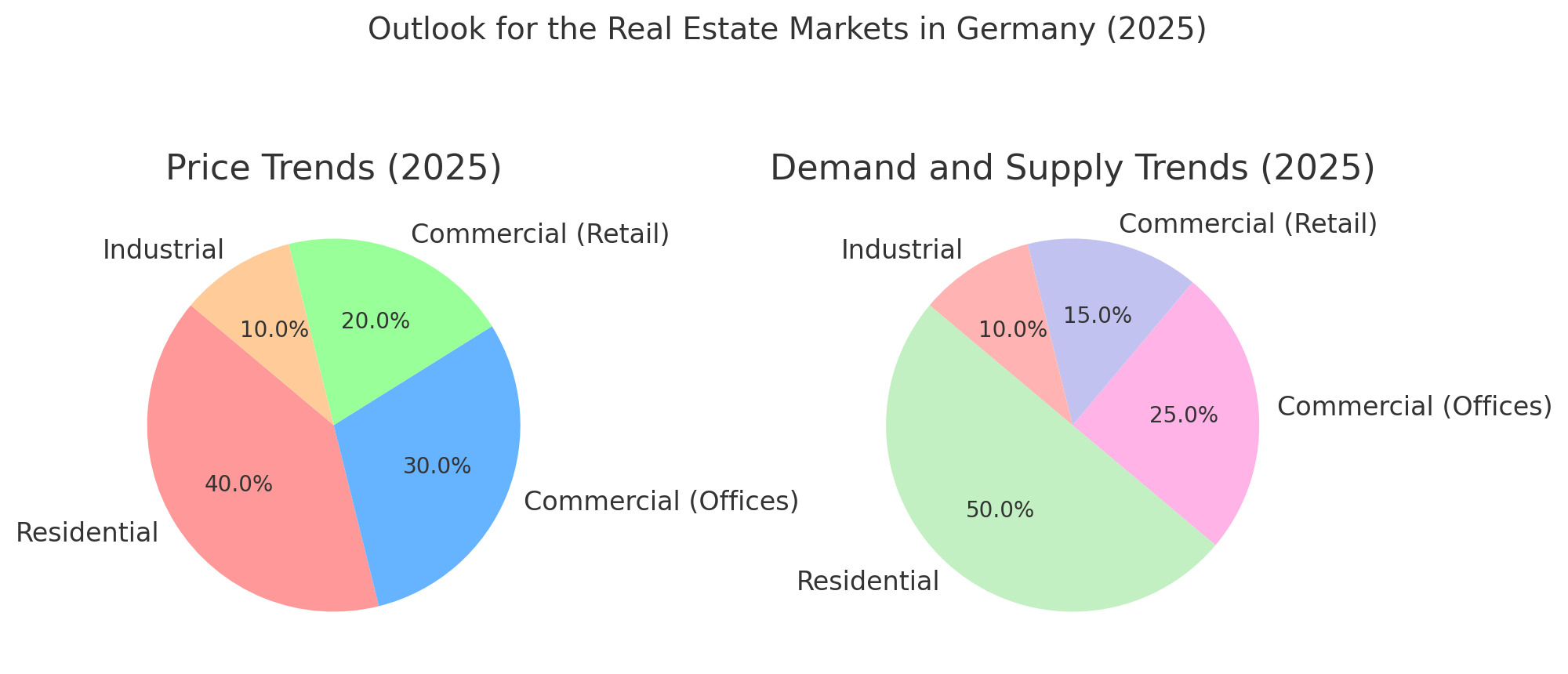
Overview of Real Estate Markets in 2025
Introduction to Emerging Real Estate Markets
As we step into 2025, the landscape of real estate is evolving at an unprecedented pace. Emerging markets are becoming hotbeds for investors seeking robust returns. Countries that once flew under the radar are now capturing attention due to their favorable investment climates and untapped potential. For example, cities in Southeast Asia and parts of Eastern Europe are witnessing rapid urbanization and population growth, driving demand for housing and commercial real estate.
Investors are now more than ever looking beyond traditional markets to find the best time to invest in real estate. They seek opportunities where economic indicators signal growth and stability, often leading them to discover hidden gems in emerging markets.
Factors Influencing Real Estate Investments
Several critical factors are shaping the choices investors make in this dynamic environment:
- Economic Growth: Countries with rising GDPs attract investments. An example is Vietnam, where growth rates outpace many traditional markets.
- Population Demographics: Younger populations in countries like Nigeria and India mean a growing demand for housing and infrastructure.
- Regulatory Framework: A transparent legal system and investment incentives can make or break a real estate market. Countries that provide favorable conditions often see inflows of foreign capital.
- Technological Advancements: Innovations in real estate technology, such as digital transactions and virtual tours, are reshaping the buying experience and making diverse markets more accessible.
Investors are increasingly focused on understanding real estate market fluctuations as they navigate the complexities of economic cycles. By paying attention to these factors, they can formulate strategic real estate strategies for economic cycles, maximizing their investment potential in a world that is both challenging and full of opportunity.

Top Emerging Real Estate Markets for Investments
Market Analysis of Country A
In the heart of Southeast Asia, Country A is making waves in the global real estate arena. The region’s booming economy and strategic location have attracted investors looking to capitalize on its growth potential. Real estate prices have steadily increased, showcasing strong returns for savvy investors.
Growth Potential
The growth potential in Country A is remarkable. Urbanization has led to a significant demand for housing and commercial real estate, with projections suggesting an annual growth rate of 7% over the next five years. Key indicators include:
- Increasing Foreign Direct Investment (FDI): Encouraged by government initiatives, FDI in the real estate sector is surging.
- Young Population: A demographic that is increasing the need for affordable housing.
Key Investment Opportunities
Investors have an array of options in Country A, including:
- Residential Developments: High demand persists for affordably priced housing units in urban areas.
- Commercial Real Estate: Office spaces and retail developments are particularly appealing, especially in growing cities.
Market Outlook for Country B
Transitioning to Country B, the regulatory environment plays a crucial role in shaping market dynamics.
Regulatory Environment
Country B boasts a transparent legal framework, which boosts investor confidence. Policies favoring foreign investment and streamlined approval processes contribute to a thriving real estate climate, reducing barriers for new entrants.
Trend Analysis
Market trends indicate a steady rise in property values, alongside increased interest in green buildings and sustainable developments. Investors are keen on environmentally friendly facilities that align with global sustainability goals.
Investment Potential in Country C
Lastly, Country C offers unique investment opportunities due to its favorable economic indicators.
Economic Indicators
Recent data highlights consistent GDP growth, a declining unemployment rate, and rising consumer confidence, all pointing to a robust economy.
Real Estate Market Trends
In Country C, innovative real estate trends are emerging:
- Smart Technology Integration: Homes equipped with the latest technology attract more buyers.
- Co-living Spaces: These are gaining traction among millennials, presenting creative options for developers.
Investors looking to capitalize on the potential of these emerging markets must keep a close eye on trends and indicators. By understanding the dynamics at play, they can make informed choices that will reap rewarding returns in the years to come.

Investment Strategies for Smart Real Estate Investments
As we navigate the promising landscapes of emerging real estate markets, it becomes crucial to adopt effective investment strategies. These strategies not only enhance returns but also shield investors from potential pitfalls.
Diversification in Emerging Markets
One of the most effective strategies is diversification. Rather than putting all your eggs in one basket, spreading investments across various asset classes and geographical regions can mitigate risks. For instance, if an investor were to target both residential properties in Country A and commercial real estate in Country B, they could benefit from varying market conditions.
Benefits of diversification include:
- Risk Reduction: A downturn in one market may be offset by gains in another.
- Opportunity Capture: Different markets may blossom at different times, allowing you to capitalize on emerging trends.
Risk Management Techniques
Implementing robust risk management techniques is equally important. Investors should consider a few key tactics:
- Due Diligence: Always conduct thorough research before investing. Understand local laws, market trends, and economic indicators.
- Contingency Planning: Prepare for unforeseen circumstances by having a plan in place. For instance, securing adequate insurance policies can cushion financial impacts.
- Using Leverage Wisely: While leveraging can amplify returns, it can also amplify losses. Maintain a balanced approach.
Long-term vs. Short-term Investment Considerations
The choice between long-term and short-term investment approaches depends on an investor’s goals and risk tolerance.
- Long-term Investments: These typically offer stability and allow for compounding growth over time. Investors focusing on areas with high growth potential, like Country C, may prefer this approach.
- Short-term Investments: Alternatively, those looking for quick returns might engage in flipping properties or investing in fast-growing markets. While this can be rewarding, it often involves a higher risk.
In conclusion, combining these investment strategies enables investors to navigate the complexities of real estate and take advantage of opportunities while managing potential risks effectively. The key lies in understanding personal objectives and adapting strategies to align with the evolving market landscape.

Technology and Innovation in Real Estate Investments
As we delve deeper into smart investment strategies, it’s essential to recognize how technology is redefining the real estate landscape. In today’s fast-paced market, leveraging technological advancements is becoming not just an option but a necessity for successful investors.
Impact of Technology on Real Estate Markets
The impact of technology on real estate markets cannot be overstated. From virtual reality tours to online property management systems, technology is streamlining processes and enhancing efficiency. For example, potential buyers can now tour properties without leaving their homes, significantly broadening the reach for sellers and reducing time on the market.
Some key technology influences include:
- Increased Transparency: Technology facilitates better access to market data, making it easier for investors to make informed decisions.
- Enhanced Marketing: Digital platforms allow for targeted marketing strategies that can attract specific demographics, thus increasing the chances of closing profitable deals.
- Automation: Administrative tasks, such as lease management and tenant screening, can be automated, allowing real estate professionals to focus on strategy rather than paperwork.
Role of AI and Data Analytics in Investment Decision Making
Artificial intelligence (AI) and data analytics are revolutionizing investment decision-making processes. By analyzing vast datasets and patterns, AI can predict market trends and rental rates, allowing investors to hone in on lucrative opportunities.
Investors can benefit from AI in several ways:
- Predictive Analytics: By examining historical data, AI tools can forecast market fluctuations, making them invaluable for understanding real estate market fluctuations.
- Risk Assessment: Data analytics facilitates more accurate risk assessments, equipping investors with the insights needed to navigate uncertainty, particularly during recession or boom cycles.
- Customized Investment Strategies: AI can tailor recommendations based on individual investor preferences, maximizing their potential returns.
In summary, embracing technology and innovation is essential for those looking to excel in real estate investments. The combination of enhanced market understanding and streamlined decision-making processes can lead to successful long-term outcomes in a continually evolving market.

Sustainability and ESG Factors in Real Estate Investments
As the global focus on sustainability and social responsibility intensifies, integrating Environmental, Social, and Governance (ESG) factors into real estate investments has become paramount. This shift not only appeals to ethically conscious investors but also aligns with the growing demand for sustainable living spaces.
Importance of Environmental Sustainability
Environmental sustainability is no longer just a buzzword; it’s a vital component of modern real estate strategies. Investors are increasingly recognizing that properties built with sustainable practices often command higher market values and attract conscientious tenants.
Some of the key benefits of prioritizing environmental sustainability include:
- Cost Savings: Energy-efficient buildings can significantly reduce utility bills, providing long-term savings for both owners and tenants.
- Higher Occupancy Rates: Properties that highlight their green initiatives tend to stand out in the market and are more likely to attract tenants looking for environmentally-friendly alternatives.
- Regulatory Compliance: Many regions are enforcing stricter environmental regulations, making sustainability not just an ethical choice, but a legislative requirement.
Social and Governance Trends in Real Estate
Beyond environmental factors, social and governance trends also play a crucial role. Investors are now holding companies accountable for their impacts on local communities and broader governance practices.
Key trends in this area include:
- Community Engagement: Properties that contribute positively to their neighborhoods and prioritize community well-being often enjoy stronger reputations.
- Diversity and Inclusion: Firms that demonstrate commitment to diverse hiring practices and equitable treatment are viewed favorably by investors and potential tenants alike.
- Transparent Governance: Adhering to ethical practices and being transparent about decision-making processes builds trust and enhances investor relationships.
In conclusion, incorporating sustainability and ESG factors into real estate investments isn’t just about doing the right thing; it’s a savvy strategy that can enhance both financial performance and social impact. As investors prioritize these attributes, they not only contribute to a healthier planet and society but also position themselves advantageously in a competitive market.

Conclusion and Future Outlook
As we wrap up our exploration of emerging real estate markets and the impactful strategies available, it’s clear that 2025 presents a myriad of investment opportunities for savvy investors. The integration of technology, focus on sustainability, and evolving consumer preferences are shaping the investment landscape, leading to exciting prospects.
Summary of Investment Opportunities
This journey through the shifting terrain of real estate investments has illuminated crucial avenues worth considering:
- Emerging Markets: Countries A, B, and C offer significant growth potential with favorable demographics and regulatory environments.
- Technology Utilization: Leveraging AI and data analytics not only streamlines decision-making but also enhances the ability to identify profitable investment opportunities.
- Sustainable Practices: Adopting ESG factors not only addresses ethical considerations but can also drive profitability through efficiency and tenant demand.
Investors who are willing to adapt and embrace these trends will be poised for success as the market continues to evolve.
Predictions for Real Estate Markets in 2030
Looking ahead to 2030, several predictions emerge regarding the state of global real estate markets:
- Increased Demand for Sustainable Properties: As environmental concerns grow, demand for energy-efficient and environmentally friendly homes is expected to rise sharply.
- Technological Integration: The use of virtual reality for property viewing and automated management systems will become standard, enhancing the buying and leasing experience for consumers.
- Resilient Investment Strategies: Investors will increasingly prioritize diversification and responsible investing, understanding that adaptability is key during economic fluctuations.
- Greater Emphasis on Community and Connectivity: Properties that foster community interaction and connectivity will become increasingly desirable, shaping development projects.
In summary, the future of real estate investments looks promising, especially for those who are proactive in understanding and adapting to these ongoing trends. By keeping a close eye on these developments, investors can position themselves to flourish in the ever-changing market landscape, reaping the rewards of informed decision-making and strategic planning.










